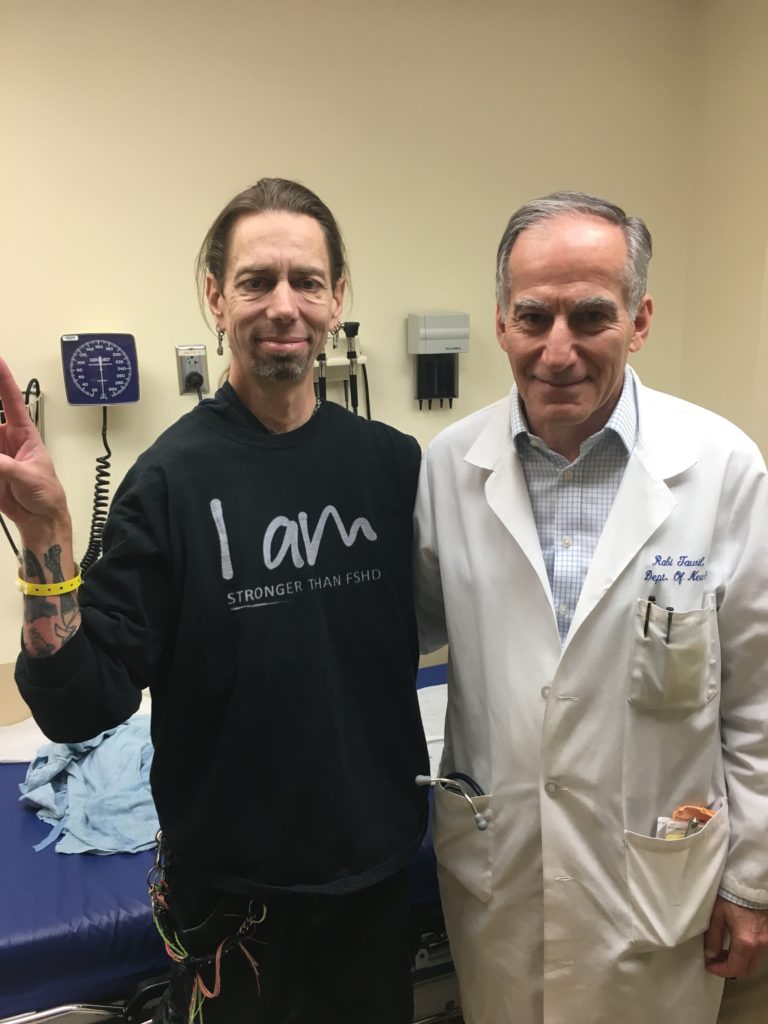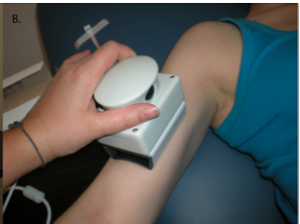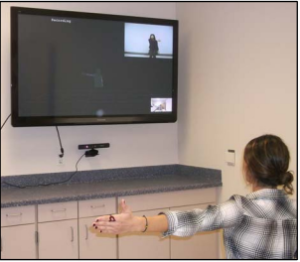
To crack the code of FSHD, patients are absolutely essential
All of the breakthroughs—the discovery of the genetic causes, understanding why some patients vary so greatly in the severity of their symptoms, teasing out the biochemical pathways that could point to future treatments—were made because patients stepped up to the plate.
Too often, we hear patients say they’ll volunteer when there’s a treatment. But we will never get to a treatment unless patients participate in fundamental research now. FSHD is uniquely human, so no laboratory mouse can ever fully model the disease. The genetic “package” that causes FSHD is found only in people. We owe an enormous debt to the patients who give DNA samples. Who submit to long interviews and exhausting physical tests. Allow a surgeon to cut out a small muscle sample. Who fight claustrophobia to lie in the narrow bore of an MRI machine.
Equally important are patients’ family members, both affected and unaffected, who provide the best experimental controls because of their shared genetic and environmental backgrounds. A parent or sibling who has very mild symptoms may hold the key to understanding the factors that protect against the full-blown development of FSHD symptoms in a more severely affected family member.
We are more hopeful today than ever before that a treatment is within sight. We cannot guarantee when that treatment will arrive, but here’s one thing we guarantee: If you volunteer for research, your participation will without question help move us a step closer to that day.
Scientific Overview of FSHD
Read the latest on wikipedia
Glossary of Scientific Terms
University of Kansas seeks volunteers for study
FSHD patients are needed for a research study for: The Relationship of Electrical Impedance Myography to Muscle Structure and Function in Facioscapulohumeral Muscular Dystrophy (FSHD). The study is directed by Jeffrey… Read More »
UC Davis study is seeking volunteers
We have been notified that researchers at the UC Davis Medical School are seeking FSHD patients to volunteer for a study. Read here about why participating in research is so… Read More »
aTyr Announces First FSHD Clinical Trial of Resolaris™
San Diego-based biotech company aTyr Pharma announced today its first clinical trial in FSHD patients of its investigational new drug Resolaris™. The Phase 1b/2 study is a double-blind, placebo-controlled, multiple ascending dose… Read More »
A recap of 2014 research highlights
Check out our press release “A Look Back: FSHD Research Advances in 2014,” which summarizes some important advances in our understanding of medical as well as fundamental scientific issues. These include… Read More »





